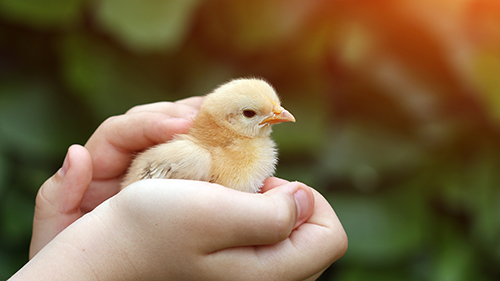Pros and Cons of Hatching Your Own Baby Chicks
Mar 08, 2021

Posted by Laura Hepburn with MannaPro
Are you thinking about incubating eggs and hatching your own chicks? It can certainly be a rewarding experience, and one that offers up some exciting possibilities for your flock. It’s important to consider all the factors before jumping in. Below are some of the main “pros” and “cons” when it comes to incubating and hatching your own chicken eggs.
PROS
Are you thinking about incubating eggs and hatching your own chicks? It can certainly be a rewarding experience, and one that offers up some exciting possibilities for your flock. It’s important to consider all the factors before jumping in. Below are some of the main “pros” and “cons” when it comes to incubating and hatching your own chicken eggs.
PROS
- One of the best things about hatching out your own chicks is that it opens up all kinds of possibilities regarding breeds, color variations and mixed breeds for your flock.
- Hatching your own eggs is FUN. While it is very fun and exciting to pick up chicks from the post office or pick them out at a feed store, hatching your own is a different kind of excitement.
- You choose the eggs, you monitor their progress as the chicks develop, and finally you watch with wonder as they break out of their eggshells. Plus, if you have children, it is a fantastic educational experience for them to see the eggs turn into baby chicks.
- If you have an existing flock and you plan to use a broody hen to hatch your eggs, then one other benefit is the fact that integrating the new chicks into the flock will usually be easier than it would be if you were to bring in “strange” chicks from an outside source. The main reason for this is that the mother hen will not be an outsider and she will work to protect “her” babies. This is true even if you let her hatch out eggs from another source.
- The main reason why some people avoid hatching out their own eggs is the most obvious: approximately 50% of all eggs turn out to be males. If you do want to hatch your own chicks, it’s always a good idea to see if you can source a couple of people with the property and need for roosters in advance.
- The expense of hatching your own eggs is something else to consider. The costs associated will range depending on your situation; using your own fertilized eggs and a broody hen will usually be the least expensive route, while buying rare or specialty eggs and a quality incubator could cost you hundreds of dollars.
- If you will be using an incubator to hatch your eggs, you’ll also want to consider the time and attention required. Incubators need daily monitoring and, in some cases, manual turning of the eggs.